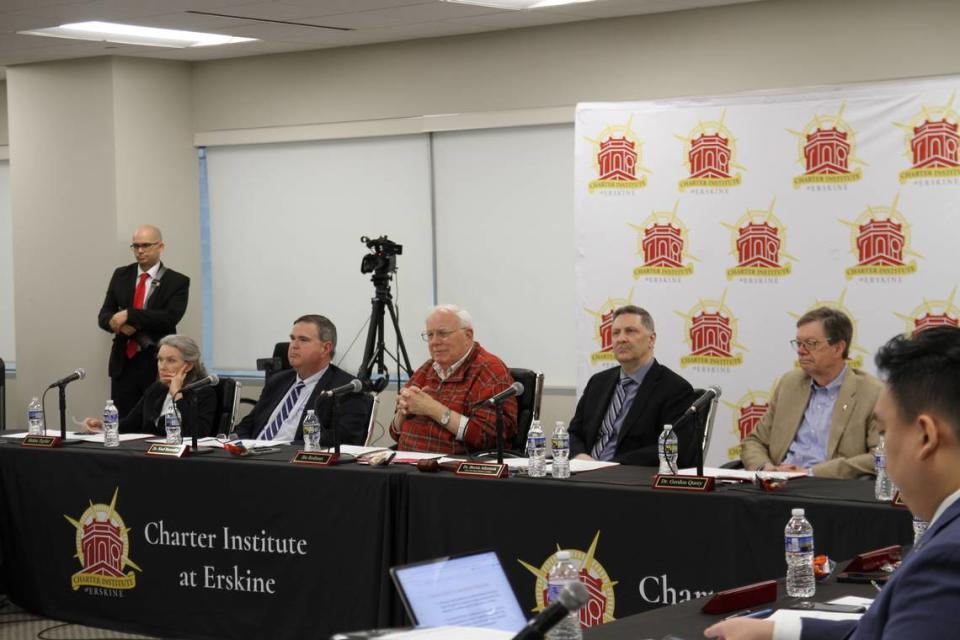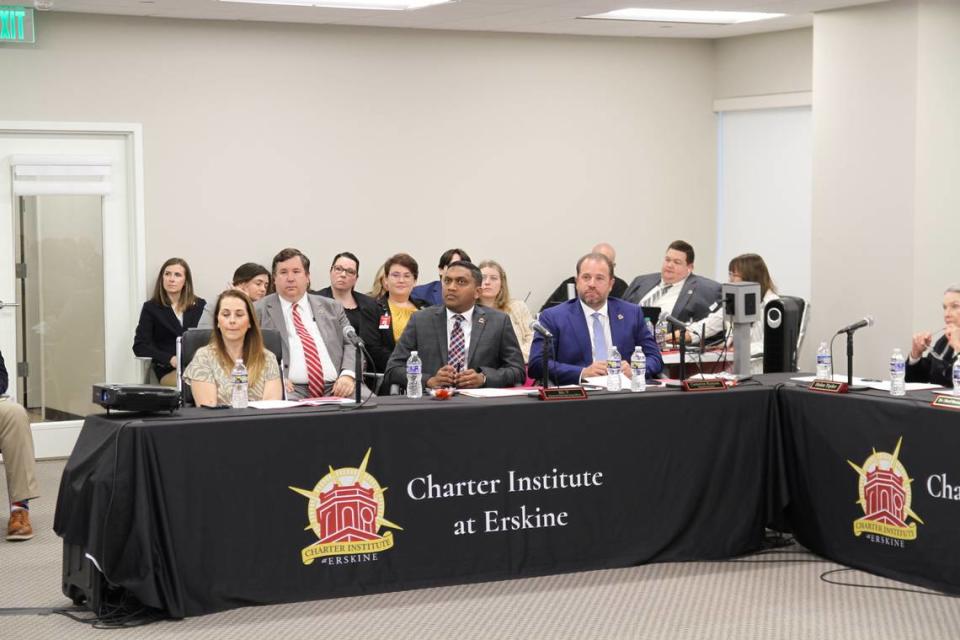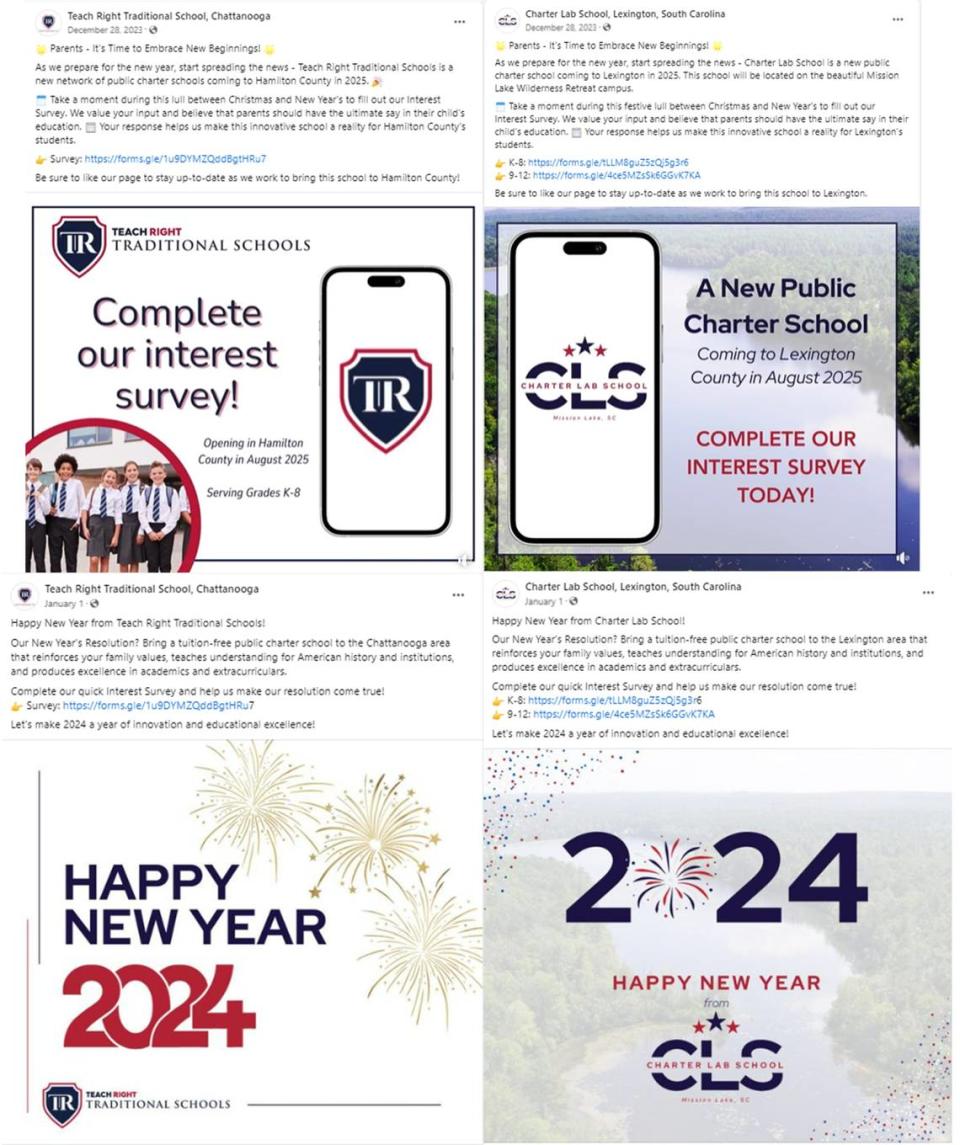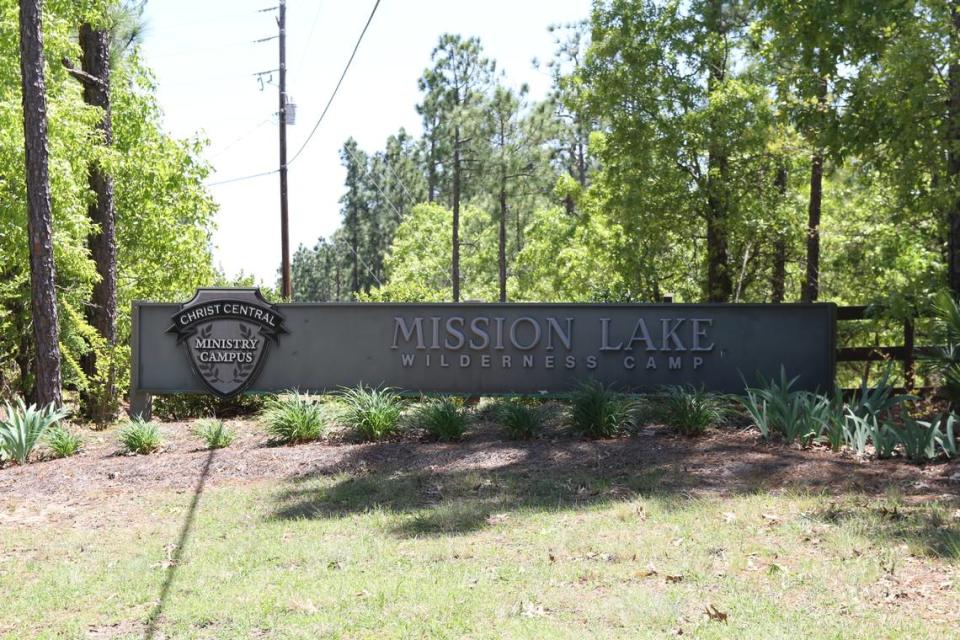SC Charter Institute has close ties to school it will oversee, raising ethical questions
South Carolina’s largest charter school district last week approved a new school at the Mission Lake Wilderness Camp in Lexington County that was proposed by a group composed almost entirely of people with close ties to the district.
The relationship between the parties raises serious ethical concerns, according to legal experts, and appears to run contrary to industry standards that recommend charter school districts provide independent oversight of the schools they authorize to ensure public dollars are spent appropriately.
The ethically fraught situation is the latest example of the charter school district, known as the Charter Institute at Erskine, pushing the boundaries of South Carolina’s decades-old charter schools law. Written in 1996 and amended years later so that Erskine College and other universities could authorize and regulate charter schools, the law does not address many of the complex issues that have emerged as a result.
In recent months, state lawmakers have taken a piecemeal approach to patch some of the law’s most glaring loopholes, but aren’t planning to pass comprehensive charter school reform legislation this year.
That means, at least for the time being, the law will remain silent on whether groups charged with authorizing charter schools, commonly referred to as authorizers, can oversee schools in which they have an interest.
Authorizers receive taxpayer dollars to vet new charter school applications, regulate schools they approve and hold accountable schools that fail to live up to their commitments. If they’re too close to the schools they regulate, the system cannot function effectively, said University of South Carolina law professor Derek Black.
“The whole reason for having an authorizer is having independent judgment over the charter school to hold the charter school accountable,” said Black, an expert in education law. “If they are the same functional entity, then that theory of governance entirely breaks down.”
The issue came to light last week when a group of Erskine associates received the Charter Institute’s approval to open a charter school within the 2,200-acre Mission Lake Wilderness Camp in Gaston. The relationships between the school’s planning committee and the Charter Institute board and staff were not acknowledged during an application hearing Wednesday and the school’s application was treated like any other.
The Charter Lab School, which plans to partner with Erskine College and Teach Right USA, the Charter Institute’s teacher training nonprofit, would open in August 2025 and eventually serve grades K-8, according to its application.
The school’s planning committee includes Erskine College’s interim provost, three people associated with Teach Right USA and several others with personal or professional ties to Charter Institute leaders.
The planning committee did not mention its plans to partner with Erskine College and Teach Right USA during its presentation to the Charter Institute board, and the board, on which Erskine president Steve Adamson and Teach Right USA chairman Stu Rodman sit, did not disclose their potential conflicts before voting to conditionally approve the school.

When asked afterward about Erskine College’s partnership with the Charter Lab School, Adamson, who chairs the Charter Institute board, referred questions to Charter Institute staff.
“I will let the Charter Institute focus in on that,” Adamson said. “Because those are things that are still in a preliminary stage.”
Rodman, who chairs three nonprofit boards with ties to the Charter Lab School, said in an interview before the vote that he was not familiar with the school and did not believe his relationships with its planning committee members posed a conflict of interest.
In addition to chairing Teach Right USA, Rodman chairs the executive committee of Christ Central Ministries, the nonprofit that owns the land where the Charter Lab School will be located, and the Palmetto Family Council, a faith-based group that employs a CLS planning committee member.
“I don’t have a financial interest in (the new school), so I would not be restricted from voting,” he told The State.
Was Charter Institute involved in developing the new school?
The Charter Institute’s approval of the Charter Lab School comes several months after it revised CEO and Superintendent Cameron Runyan’s contract to expand the scope of his responsibilities to include the development of so-called laboratory schools.
Runyan, who declined to be interviewed for this article, introduced the lab school concept during a Charter Institute board meeting last year, explaining that he, Rodman and Adamson had been “extensively” involved with the project.
“The Charter Institute at Erskine has had a vision for the past couple years of starting laboratory schools — schools that have a job creation development type of component to them — and the Charter Institute being a formal part of those,” he told the board last June. “Something that is very, very unique, tied to economic development, tied to job creation, et cetera.”
Runyan said at the time there was an “emerging opportunity” to launch a “classical-type” lab school in downtown Columbia that would be called the Gateway School because of its central location in the state’s capital city.
“We already have initial renderings on buildings and a potential site location that we’re in discussion over as well,” he said.

While the Charter Lab School’s name and location differ from Runyan’s original proposal, in many respects the school resembles the project he pitched to the board last summer.
The Charter Lab School, like the aforementioned Gateway School, proposes to use a classical-style curriculum that emphasizes moral character and virtue and is focused on job training.
Charter Lab School planning committee chair Raegan McCullough said during her presentation Wednesday that the school would “create labs across our campuses to prepare students for the workforce.”
“We’re going to be installing the workforce initiatives in our students at a very young age,” said McCullough, the daughter of a Teach Right USA director whose teacher wellness company is a Charter Institute vendor.
“Our students will have classroom roles, classroom jobs. They’ll have to interview for them. They’ll use their friends as references,” she explained.
Ties to Tennessee schools project
The Charter Lab School also shares striking similarities to another controversial school project with which Charter Institute leaders were closely involved.
CLS’ mission statement, core commitments and curriculum are virtually identical to Teach Right Traditional Schools, a trio of Tennessee charter schools Institute leaders quietly worked on for much of the past year.
Runyan pulled the plug on the Tennessee schools project in January, around the time state lawmakers began raising concerns about the potential misuse of South Carolina tax dollars, citing a desire to redouble efforts in his home state.
He has denied any wrongdoing.
The Teach Right Traditional Schools website has since been taken down, but archived screenshots preserved by The State show it mirrors the Charter Lab School’s current page, down to the WordPress theme and the questions asked on each school’s interest form.
Even the Facebook pages for Teach Right Traditional Schools and the Charter Lab School posted near-identical messages on the same days, indicating they may have shared an administrator.

Like the Charter Lab School’s planning committee, several of Teach Right Traditional Schools’ planning committee members had ties to Teach Right USA, the teacher training nonprofit the Charter Institute formed last year and loaned $500,000.
It’s unclear exactly how Teach Right USA spent the money. The organization’s leaders have not responded to multiple requests for comment and the Charter Institute has denied public record requests seeking information about the group, which it argues is a “private corporation not subject to (the Freedom of Information Act).”
CLS planning committee conflicts
Concern over the Charter Lab School is not confined solely to questions about its independence from the Charter Institute and connections to Institute leaders.
Several of its planning committee members also have potential conflicts of interest with vendors. (Charter school planning committees typically transform into charter school boards once a school has been approved.)
The most glaring example involves the Rev. Jimmy Jones, a prominent local pastor who runs Christ Central Ministries, a religious organization with dozens of mission stations and social service locations across the state that owns the land where the Charter Lab School has been proposed.

Jones, who has longstanding ties to both Runyan and Rodman, declined to divulge any details about the school’s arrangement with his church organization.
“Your questions are premature,” he said in response to a reporter’s inquiries about the Charter Lab School’s facilities. “That’s not something to be answered at the moment.”
According to its application, the Charter Lab School plans to “enter a contract or lease agreement with a church or other religious organization.” Separately, the school estimated it would pay more than $14 million for rent, or roughly $2.8 million annually on average, over its first five years in operation, according to its proposed budget.
When a Charter Institute board member asked Jones directly about the school’s facilities plan at Wednesday’s meeting, he responded in a way that did not answer the question.
Rather than ask for clarification, Charter Institute board members moved on to other questions and the issue was not revisited.
A short time later, the Charter Institute’s director of authorization recommended the board approve the school conditionally and the board voted unanimously to do so.
The school’s conditional approval appears to stem from challenges its planning committee has had finding parents interested in enrolling their children.
The Charter Lab School is aiming to open with 1,134 students in grades K-6, increasing to 1,458 students at full capacity as a K-8 school, but hasn’t generated enough interest yet to support those projected enrollment numbers.
According to its application, submitted at the beginning of February, the committee had managed to find just 28 school-age students interested in attending the school.
McCullough acknowledged at Wednesday’s meeting that interest in the school was not where it needed to be, but said the planning committee had a “robust” plan to ensure it met its enrollment projections.
The group will be holding its first “face-to-face interest meeting” for prospective parents on Tuesday at the Cayce-West Columbia public library.

